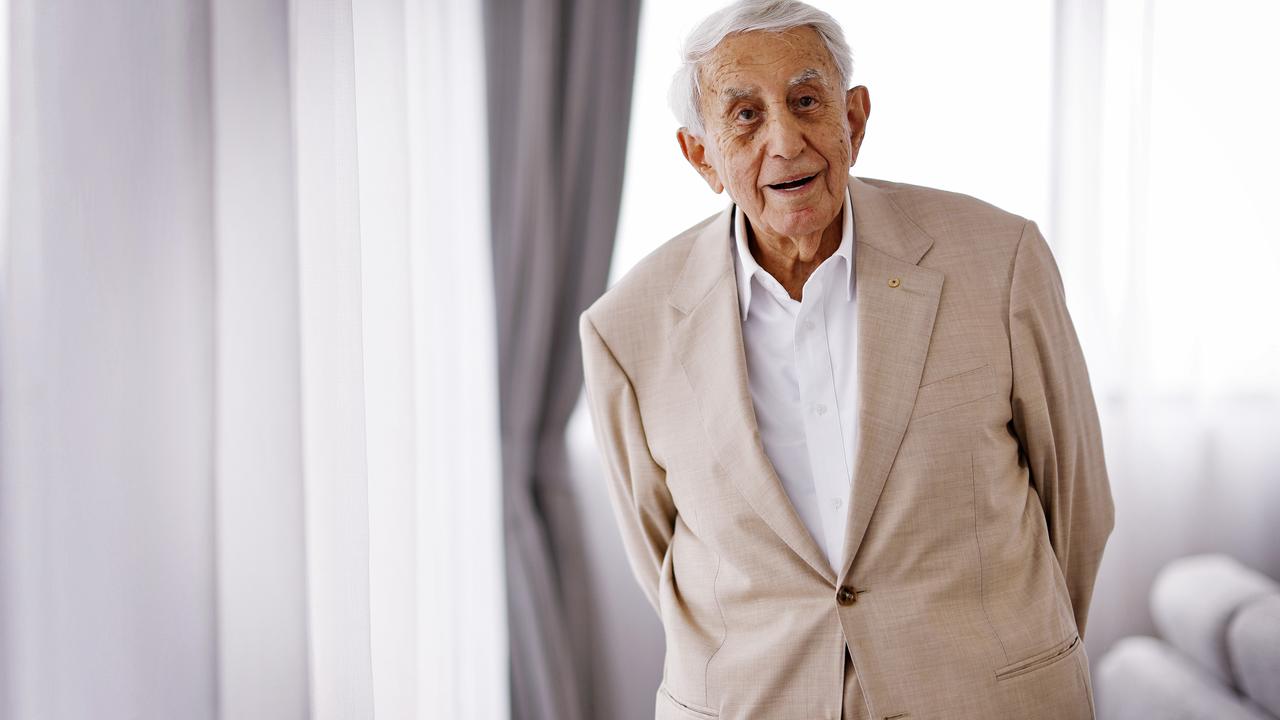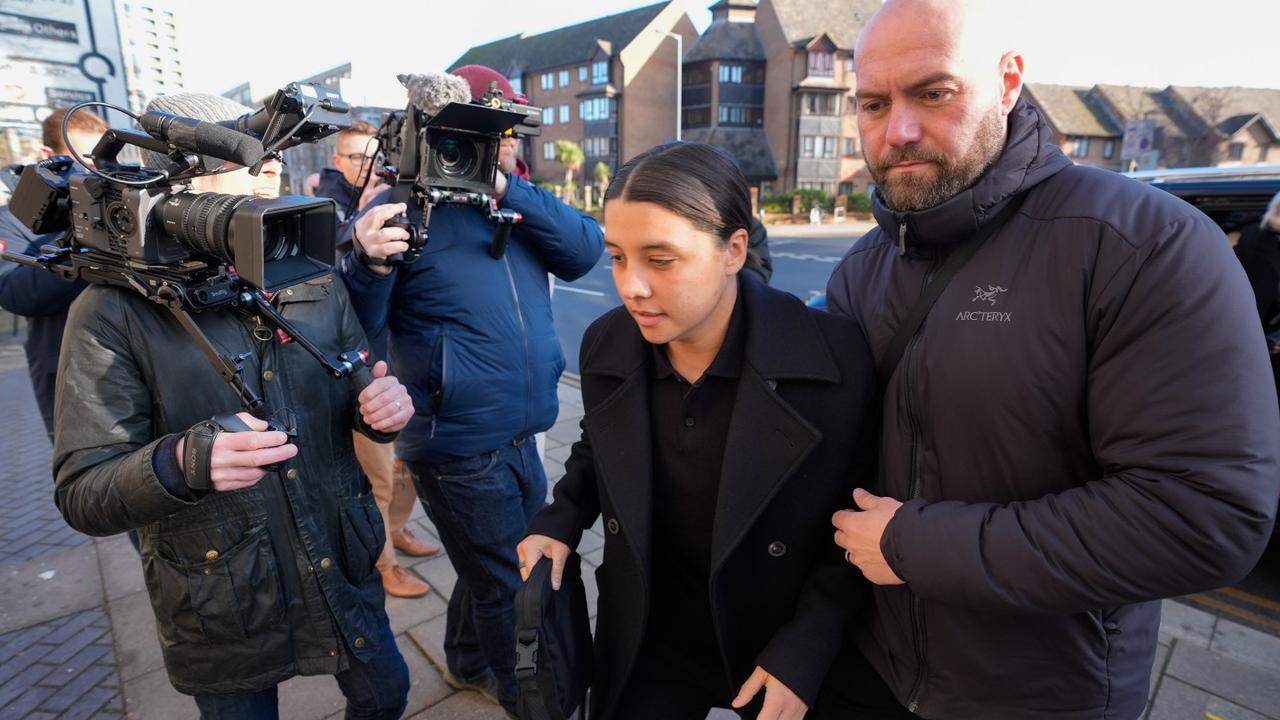High seas ‘misadventure’ could lead to conflict, PM warns
Anthony Albanese has warned of the dangers of military miscalculation in the South China Sea and condemned Beijing’s claims over the waterway during a visit to Vietnam.
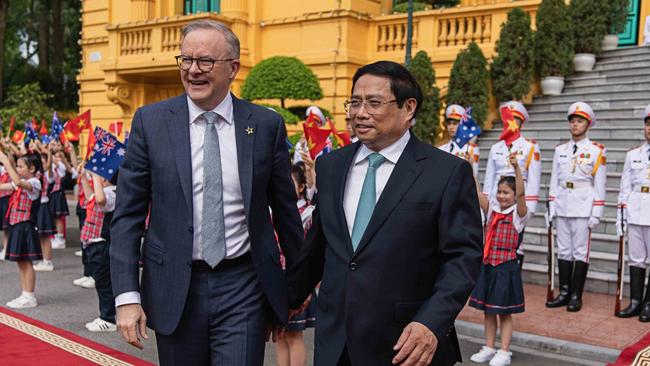
Anthony Albanese has warned of the dangers of military miscalculation in the South China Sea and condemned Beijing’s claims over the contested waterway after a near-collision between a Chinese warship and a US destroyer in the Taiwan Strait.
The Prime Minister, on the second day of a state visit to Vietnam, threw Australia’s support behind Hanoi’s complaints over Chinese incursions into its territory, and pledged to strengthen maritime co-operation between the countries.
As China’s Defence Minister warned foreign nations not to enter its claimed territorial waters, Mr Albanese declared Australia would continue to assert the rule of law in South China Sea through freedom of navigation operations.
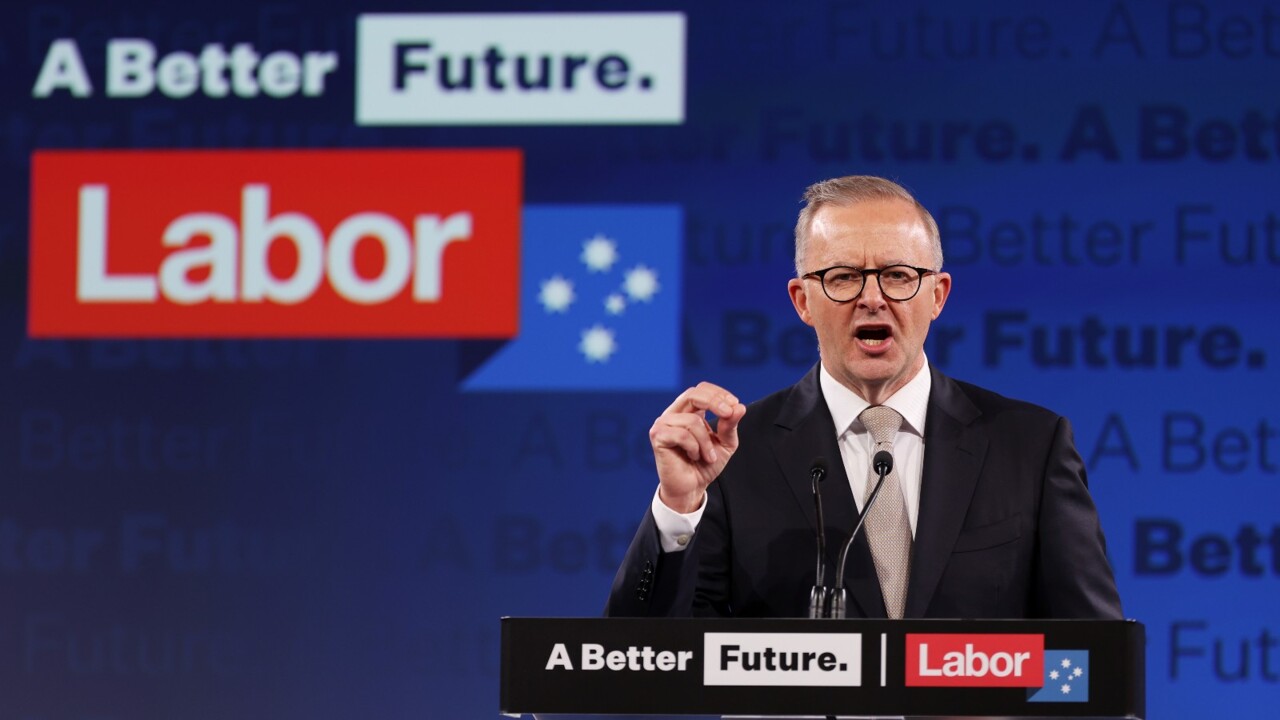
His comments followed a dangerous incident on Saturday when a Chinese warship came within 140 metres of hitting the American destroyer USS Chung-Hoon in the Taiwan Strait.
The Chinese vessel increased its speed and cut across the bow of the Chung-Hoon, according to reporters travelling aboard a Canadian warship that was following the US vessel.
Mr Albanese, who warned of the need for dialogue between China and the US in a weekend speech to Asia’s premier security conference, said the incident was concerning.
“I spoke (at the Shangri-La Dialogue) about misadventure or miscalculation having consequences,” he said.
“We need to make sure that the UN Convention on the Law of the Sea applies. We need to make sure that all operations, maritime and aviation, in the region are able to operate safely.”
An arbitration tribunal confirmed in 2016 that China’s “nine dash line” claim over the South China Sea had no basis under international law.
But Chinese Defence Minister, General Li Shangfu, said other countries should stay away and “mind their own business”, declaring: “They’re not here for innocent passage.”
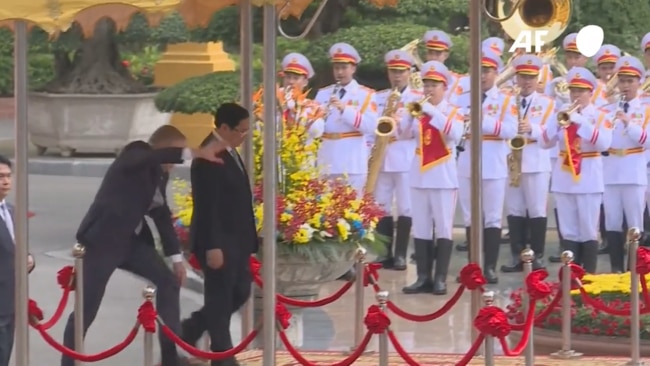
Mr Albanese, who avoided injury when he lost his footing during a military parade to welcome him to the country, had a series of meetings on Sunday with Vietnam’s top four leaders, including Communist Party General Secretary Nguyen Phu Trong.
In official talks with Vietnamese Prime Minister Pham Minh Chinh, Mr Albanese pledged to bolster the maritime partnership between the countries, and agreed to new cooperation in international peacekeeping and the prevention of terrorism and money laundering.
The leaders agreed to regular trade ministers’ meetings in a bid to double two-way trade to more than $44bn, as the countries move to elevate bilateral ties in coming months to the status of a “comprehensive strategic partnership”.
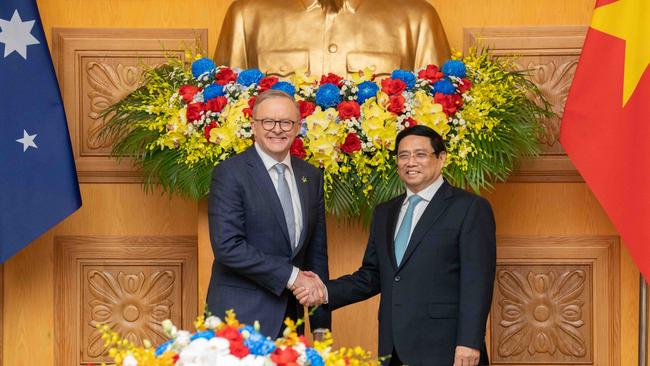
Mr Albanese said sealing the closer partnership would “signal the trust that we have in each other as top-tier partners and enduring friends”.
After 50 years of official relations, the leaders’ steered clear of discussing Australia’s role in the US-led Vietnam War, with Mr Albanese declaring the nations’ were “looking ahead to the future”.
The Prime Minister announced $105m of new development assistance to support Vietnam’s economic growth and clean energy transition, and flagged a role for Vietnamese workers under his government’s new immigration policy to fill skills shortages in aged care and other industries.
Business Council of Australia chief executive Jennifer Westacott, who was in Hanoi in her capacity as chancellor of Western Sydney University, called for a special skilled migration agreement with Vietnam.
“I think we need to find a way to tap into the very high-skilled labour that‘s here,” she said.
“English is obviously taught in schools and people really want that work experience in Australian companies.”
WSU is one of Vietnam’s top education partners, along with RMIT University.
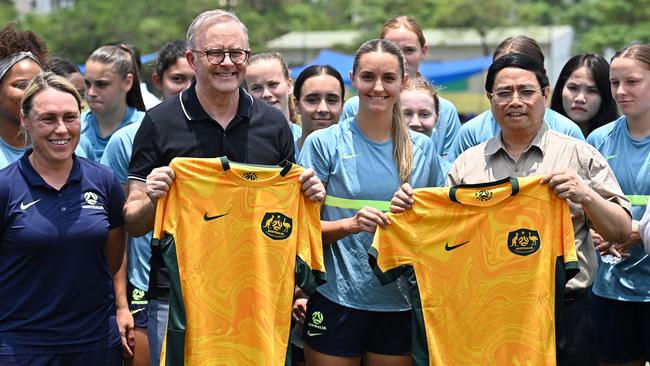
Mr Albanese also paid his respects at the final resting place of Vietnam’s revolutionary leader Ho Chi Minh and met with Australia’s Young Matildas under-20 soccer team, who were in the country for World Cup qualifying matches.
Earlier he visited a local banh mi restaurant, where he enjoyed the iconic Vietnamese sandwich washed down with a beer. The bread was made with Australian wheat and the beer brewed with Australian barley.
The Prime Minister was due to return to Australia on Monday morning.





